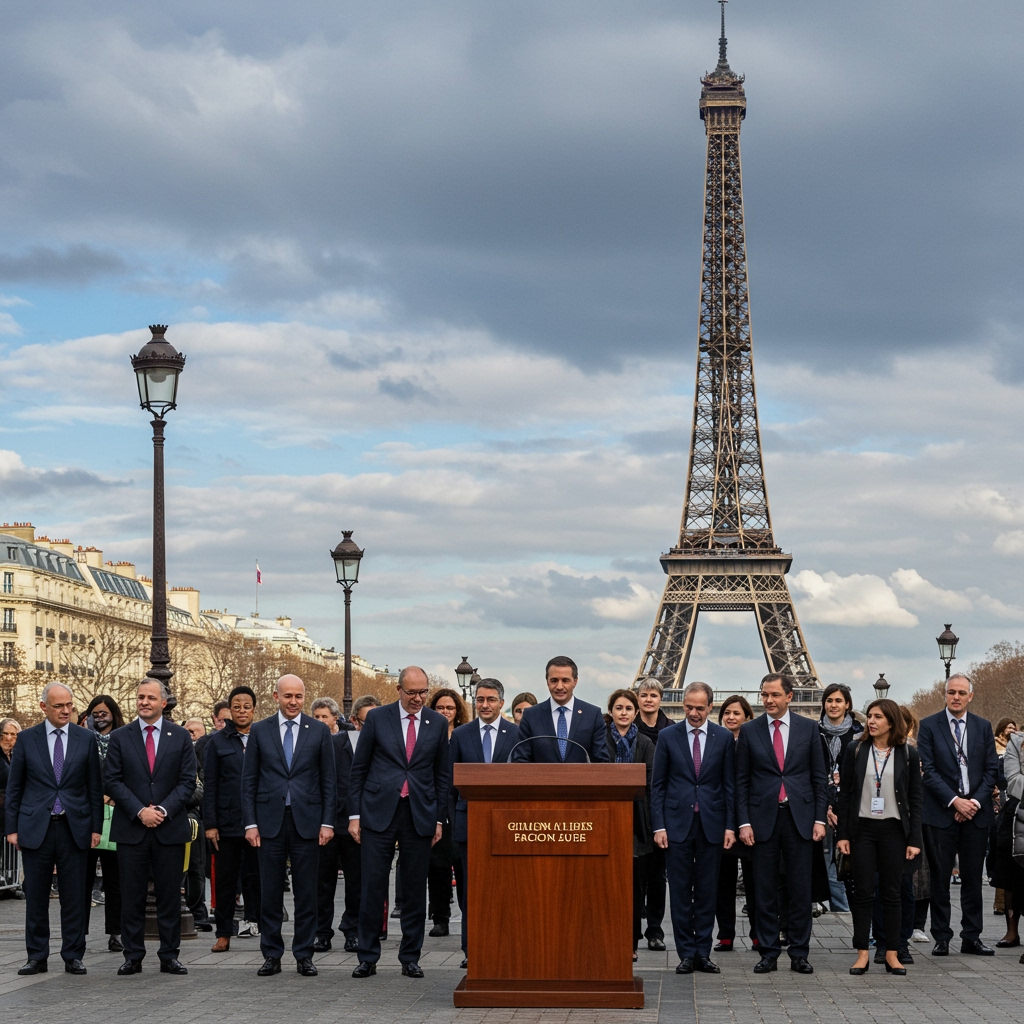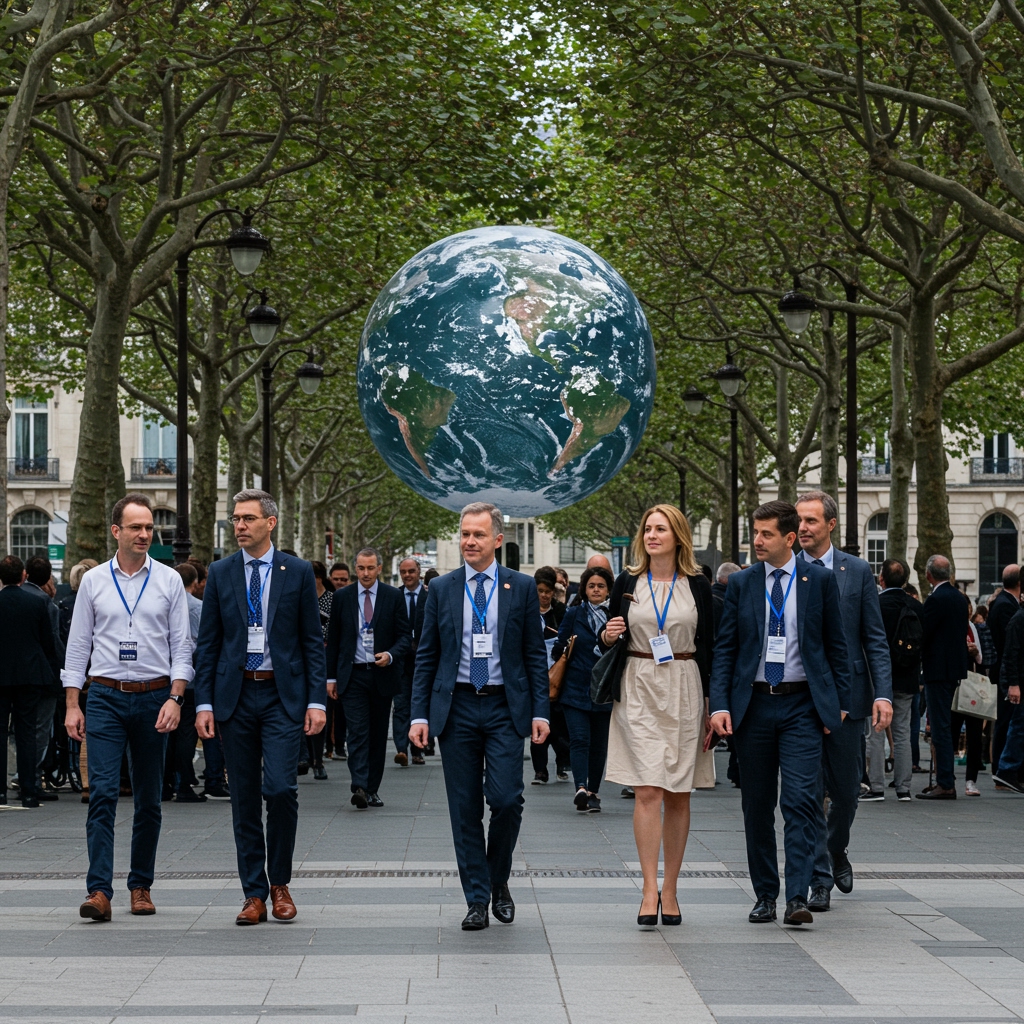World Leaders to Gather in Paris for Pivotal 2025 Climate Summit
In a significant development for global climate action, representatives from over 150 countries, including the G7 nations and major developing economies, have confirmed their attendance at a crucial summit scheduled for February 17-20, 2025, in Paris, France. This high-level meeting is specifically convened to accelerate the implementation of commitments made during COP29, the 29th Conference of the Parties to the UNFCCC.
The summit is being jointly hosted by the United Nations Framework Convention on Climate Change (UNFCCC) and the French government, underscoring the international community’s recognition of the urgent need to translate climate pledges into concrete action. The gathering is expected to build upon the outcomes of recent climate negotiations and address key financial and structural challenges hindering effective global climate response.
Key Objectives: Finance and Support
The primary focus areas for the Paris summit are twofold: finalizing mechanisms for the Loss and Damage Fund and establishing a new global goal on climate finance for the post-2025 era. The Loss and Damage Fund, a critical mechanism aimed at providing financial assistance to countries most vulnerable to the irreversible impacts of climate change, has been a focal point of recent climate negotiations. While the fund’s operationalization was agreed upon at COP27, critical details regarding its structure, funding sources, and disbursement mechanisms still require finalization.
Securing substantial pledges for the fund is a major objective of the February 2025 meeting. Organizers aim to gather commitments towards an initial target of $50 billion for the Loss and Damage Fund. This target represents a crucial step in ensuring the fund is adequately resourced to address the escalating costs associated with climate-induced disasters and slow-onset events in vulnerable nations. The summit provides a vital platform for developed countries, historically the largest emitters, to demonstrate solidarity and financial commitment towards climate justice.
Parallel to finalizing the Loss and Damage Fund, the summit will also tackle the equally critical issue of future climate finance. Discussions will center on establishing a new collective quantified goal on climate finance beyond the pre-2020 goal of mobilizing $100 billion per year. This new post-2025 goal is expected to be significantly higher and more comprehensive, reflecting the escalating scale of climate impacts and the investments required for both mitigation and adaptation efforts globally. Agreeing on the size, scope, and architecture of this new financial goal is seen as essential for unlocking the necessary investments for a global transition to a low-carbon, climate-resilient future.
Enhancing Transparency and Accountability
A third, equally important objective of the Paris summit is agreeing on methodologies for tracking national contributions to emission reduction targets. As the world approaches the next major review cycle of the Paris Agreement – the Global Stocktake – robust and transparent tracking of Nationally Determined Contributions (NDCs) becomes paramount. Effective methodologies are needed to ensure that countries are on track to meet their commitments and to provide a clear picture of collective global progress towards limiting global warming.
The summit will seek to standardize or harmonize reporting frameworks and transparency requirements, ensuring that data on emission reductions, adaptation efforts, and financial support is consistent, comparable, and reliable. This focus on transparency and accountability is crucial for building trust among nations and for identifying areas where greater effort or international cooperation is needed. Agreeing on these methodologies ahead of the next review cycle is seen as vital preparation, enabling a more effective and data-driven assessment of global climate action.
Building on COP29 Momentum
The February 2025 summit is strategically timed to build directly on the momentum generated at COP29. While the specific outcomes of COP29 were not detailed in the initial announcement, it is understood that the Paris meeting will focus on the practical implementation challenges arising from agreements made at that conference. COP events typically set high-level goals and frameworks, leaving the detailed operationalization to subsequent meetings. The Paris summit is positioned as that critical follow-up, designed to move from political agreement to tangible action, particularly on the finance and transparency fronts.
The presence of representatives from over 150 countries, encompassing both major developed and developing economies, highlights the inclusive nature of the summit and the widespread recognition of the interconnectedness of climate challenges. Discussions are expected to be complex, navigating diverse national circumstances, financial capacities, and priorities. However, the shared objective of accelerating climate action provides a common ground for negotiations.
Towards a Resilient Future
The outcomes of the Paris summit in February 2025 are anticipated to have a profound impact on the trajectory of global climate action. Successful agreements on the Loss and Damage Fund mechanisms and funding, the establishment of an ambitious post-2025 climate finance goal, and the adoption of robust tracking methodologies will be critical indicators of the international community’s resolve. The summit represents a crucial opportunity to bridge financial gaps, enhance accountability, and ultimately, strengthen the collective ability to address the climate crisis and build a more resilient future for all.





